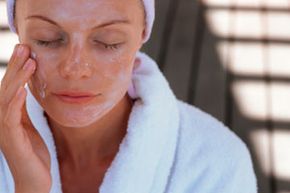Understanding vitamins and their benefits, limitations and even dangers is a bit like understanding a family. You may not have a problem with your child hanging out with Bobby Jones, Martha Jones or Susan Jones -- but little Jim Jones ... he's another story. They're all Joneses, but they also have different individual names, characteristics and liabilities. In the same way, addressing the issue of sun exposure while taking vitamin A requires a little examination and explanation.
A vitamin is something made by an animal or plant that's essential to your health and growth [source: Teens Health]. Vitamin A is really a broad nickname for an organic group of compounds that aid in eye and immune system functions and the healthy growth and development of skin [source: WebMD]. It would be more accurate to call it by one of its scientific names but antixerophthalmic vitamin and 3-dehydroretinol just don't roll off the tongue. Retinol and Retin A -- which are typically used as cosmetic and anti-aging or acne treatments -- are chemical alterations of vitamin A. These vitamin-A derivatives have the potential to make your skin more sensitive to sunlight [source: Estridge; Yerman].
Advertisement
Doctors recommend that people using substances containing either retinol or Retin A avoid extended periods in the sun and that they make certain to apply sunscreen [source: Wiegman]. But even these two manipulated forms of vitamin A are different from each other, and those differences can have a big impact on your level of sensitivity to the sun's rays [source: Estridge].
Though retinol and Retin A's names are quite similar, it's easy to understand which is which and why one may be fine for you and the other less than ideal. Click ahead to learn more.
Advertisement

